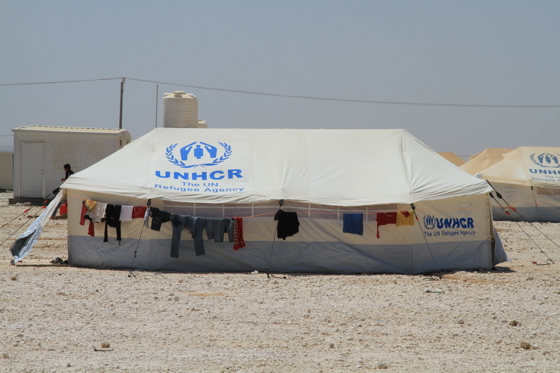Cooperation with the Office of the UN High Commissioner for Refugees (UNHCR)
Historical archive
Published under: Stoltenberg's 2nd Government
Publisher: Ministry of Foreign Affairs
Article | Last updated: 21/04/2015
The Office of the UN High Commissioner for Refugees (UNHCR), also known as the UN Refugee Agency, is the most important UN organisation when it comes to the protection of people who have been forced to flee their homes.
Norway allocated NOK 416 million to UNHCR in 2014, making it the world’s ninth largest contributor to the organisation. Norway has also supported UNHCR in other ways, for example by providing experienced personnel through the standby roster NORCAP, which is run by the Norwegian Refugee Council, by providing emergency relief equipment and expertise through the Norwegian Emergency Preparedness System (NOREPS) and the Norwegian Directorate for Civil Protection (DSB), and by providing Junior Professional Officers, young Norwegians who make a commitment to work for UNHCR for three years.

UNHCR. From a refugee camp in Jordan. Photo: F.O. Andersen, Ministry of Foreign Affairs
Norway is also cooperating with UNHCR on the resettlement of refugees in a number of crisis situations. In 2014, Norway received around 1 000 refugees from Syria. It also received large groups of Congolese refugees from Uganda and of Afghan women and their children from Iran. It is UNHCR that submits cases of this kind to Norway.
In addition to being one of the main contributors to UNHCR, Norway places emphasis on maintaining a close dialogue with UNHCR on specific topics. What is perhaps of paramount importance to Norway is that UNHCR’s work is part of a coherent and well-coordinated international humanitarian effort that ensures that we reach those most in need of protection and assistance. The gender dimension is important to Norway, as is the protection of children in crisis situations. Norway is also particularly keen to ensure that as many children as possible – including in areas of crisis and conflict – receive an education, and that development projects can be initiated that enable refugees to become self-reliant. Other important topics include protection of internally displaced people, environmentally displaced people, and people affected by sexual violence or persecuted because of their sexual orientation or gender identity.